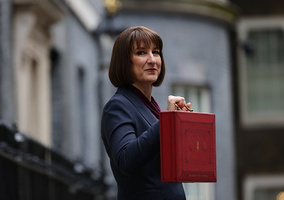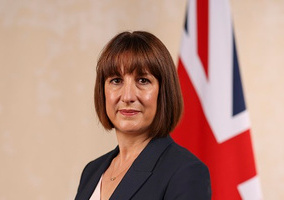Many charities are expected to face increased staff costs next year after the government confirmed that minimum wage rates will increase from April 2026.
Ahead of today’s budget, the government announced a 4.1% increase in the national living wage (NLW), which applies to workers over 21, to £12.71 per hour.
The national minimum wage (NMW) for workers over 18 is set to rise by 8.5% to £10.85 an hour while rates for apprentices will increase by 6% to £8 per hour.
While the rises are not a surprise, as the rates tend to increase each year, sector umbrella bodies said their members would face increased staff costs at a challenging time nonetheless.
Announcing the rises yesterday, prime minister Keir Starmer said: “The cost of living is the number one issue people are facing, with too many struggling to make ends meet. I am determined to tackle it.”
Katherine Chapman, director of the Living Wage Foundation, welcomed the increases but said the rates still fall short of her organisation’s real living wage rates.
The upcoming rises follow NLW and NMW increases that came into force in April this year alongside a controversial hike to employers’ national insurance contributions.
Above inflation rises
Richard Sagar, head of policy at the Charity Finance Group, said the increases would be welcomed by many workers and that the announcement was “genuinely positive news for millions of people across the country”.
“However, for many charitable organisations, this increase – which significantly exceeds current inflation rates and average earnings – comes at a particularly challenging time.
“Following the sizeable rise in NLW and NMW in April this year, alongside the increase in employer national insurance contributions, our research shows that many charities are already at financial breaking point.
“Our members have told us that they are making the difficult decision to reduce services and are being forced to consider recruitment freezes and redundancies.
“This doesn’t just affect charitable employees – it directly impacts the vital services that vulnerable communities and people depend upon every day.
“Unlike for-profit businesses, charities cannot simply pivot to generate additional income. They rely on the generosity of the public and the support of funders. Without corresponding increases in grant funding and contract uplifts, many organisations will face impossible choices about which services they can continue to deliver.
“While we fully support fair pay for workers, we are concerned that without additional financial support for the sector, these increases risk the unintended consequence of reduced charitable services precisely when they are needed most.
“We hope the government will recognise this pressure and work with the sector to ensure that making work pay doesn't come at the cost of the communities we serve.”
NCVO chief influencing officer Leigh Brimicombe: “Charity workers deserve fair pay for the vital work they do, so we welcome the rise in the national living wage.
“However, many charities are already under severe financial pressure to meet the rising cost of delivering services.
“With employer national insurance also increasing in April, higher wage bills will add further strain at a time when funding is falling. Many organisations will have to review the services they offer as a result, which puts staff and the communities they support at risk.
“For charities delivering public services, the government must ensure future funding includes adequate inflationary uplift, including increased wage costs.
“This is essential to ensure employees receive a fair wage without forcing charities to choose between using fundraising income to meet the true cost of delivery or reducing the vital services they are being asked to provide.”
Shops and hospices expect impact
Robin Osterley, chief executive of the Charity Retail Association, said that while the rate increases would affect charity shops, they were “the right thing” for the government to implement.
“It is, of course, inevitable that this will put additional costs onto charity shops, but as with everything else, they are going to find ways of dealing with it,” he told Civil Society.
“These increases are not coming as a surprise so I think many of our members will have already worked out how to deal with it.”
Abe Staples-McCall, policy and public affairs manager at Hospice UK, said: “Staff costs are already hospices’ biggest expenditure, representing 73% of their total costs.
“Dedicated hospice staff deserve fair pay, yet any increase in staff costs will add to the pressure on hospices, with financial strain already forcing two in five to plan for cuts this year.
“Hospices need urgent funding reform to alleviate the pressure they’re facing long-term, and they need financial support right now, to continue to be there for everyone who needs them.”












